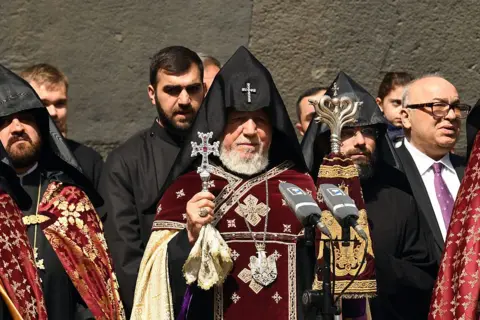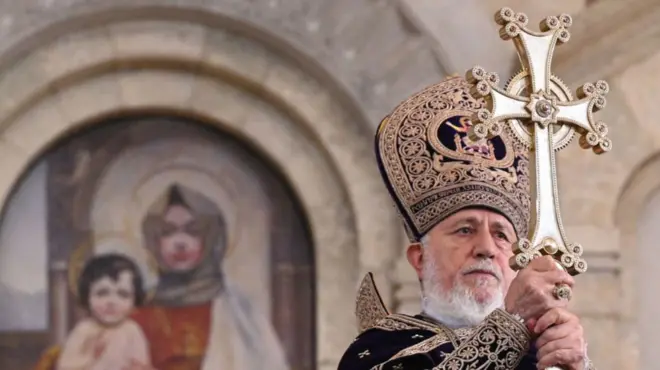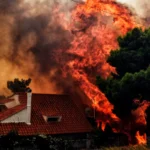Introduction: When Politics Meets Faith
The ongoing Armenia church clash has sent ripples through the nation’s political and religious communities. Prime Minister Nikol Pashinyan has taken an unorthodox step—offering to expose himself to church leaders to prove he is Christian—after being publicly accused of being circumcised by clerics, igniting a fierce dispute between church and state.

Origins of the Dispute
This confrontation began last week when Father Zareh Ashuryan accused Pashinyan of betraying the Armenian Apostolic Church. Comparing him to Judas, the priest challenged Pashinyan’s Christian status. In response, Pashinyan said on Facebook that he would disrobe at a public meeting with the Church’s head—Catholicos Karekin II—a gesture designed to forcibly dismiss the allegations.
From Personal Accusations to Public Outcry
The escalation included Pashinyan’s direct accusations that the catholicos broke his vow of celibacy and fathered a child. This accusation, made via press release, led to a wave of backlash from church officials who accused the prime minister of threatening Armenia’s spiritual unity. Subsequent counterclaims—such as photos and surnames of the alleged child—were circulated by government-aligned outlets.
Arrests, Coup Claims & Political Fallout
Tensions peaked when security forces detained 16 individuals, including Archbishop Bagrat Galstanyan, who heads the Sacred Struggle movement. The government accuses them of plotting a coup—planning 250 assault squads targeting state security facilities. Supporters argue these are trumped-up charges intended to silence opposition, heightening fears of growing authoritarianism.

Billionaire Karapetyan & the ENA Nationalisation Drama
Dual Armenian-Russian mogul Samvel Karapetyan, a major Church donor and owner of the Electric Networks of Armenia (ENA), entered the fray by pledging support to the church. He was subsequently arrested under charges of incitement. In response, Pashinyan ordered ENA’s nationalisation—an effort he said must happen “swiftly and effectively”—raising alarm among investors and international observers.
Russia Watches Closely
Russia’s foreign ministry promptly responded, stating that they were “monitoring the situation” regarding Karapetyan, a Russian national, and would ensure his rights are safeguarded. The involvement of powerful Armenian-Russian elites signals broader geopolitical concerns at play, particularly as Armenia approaches a crucial election next year.
Wider Implications: Church, State, Democracy
- Church authority weakened: The public feud undermines the once-united stance of the Armenian Apostolic Church.
- Political polarization deepens: As elections loom, Pashinyan’s showdown strengthens his core base but divides the country.
- Rule of law at a crossroads: Mass arrests of clerics and business figures raise concerns about impartiality and due process.
- International spotlight: Russia’s assertions and foreign media coverage ensure Armenia’s internal conflict remains under global scrutiny.

Conclusion: Armenia at a Political and Spiritual Crossroads
The Armenia church clash is more than a spat over personal attacks—it represents a critical battle over national identity, democratic checks and balances, and Armenia’s path forward as elections approach. Whether Pashinyan’s gambit will strengthen his position or intensify domestic fractures remains uncertain.
For comprehensive coverage of Armenia’s political tensions, explore Armenia’s Pre‑Election Political Battles.
Stay informed with trusted coverage via Reuters Europe









